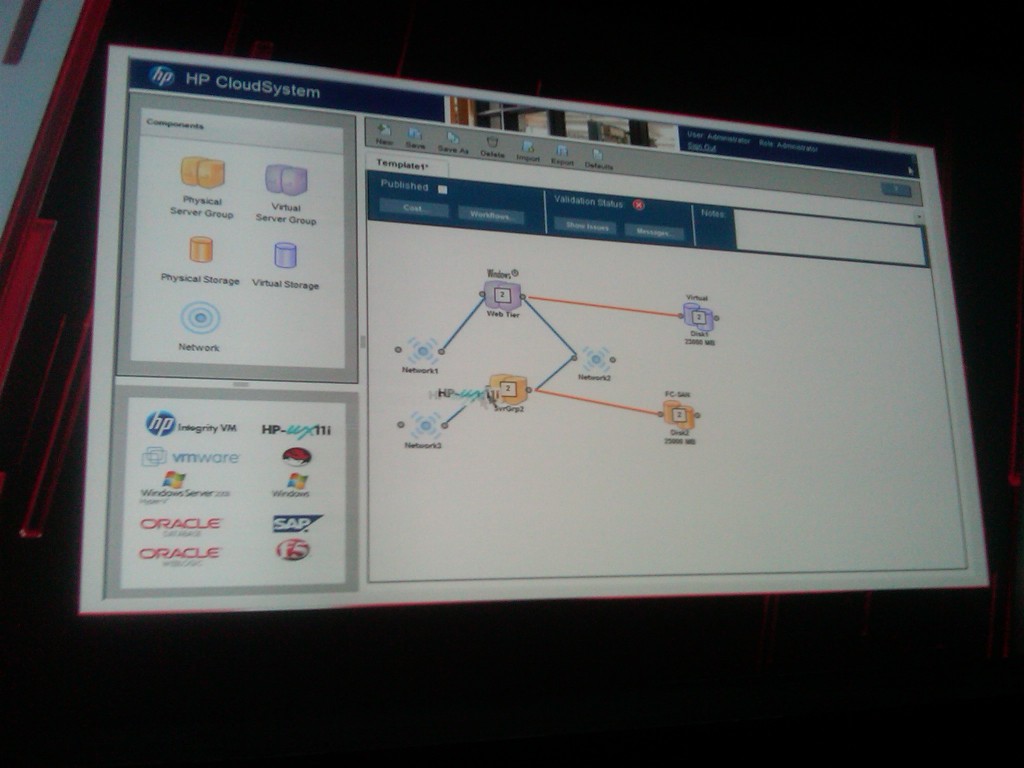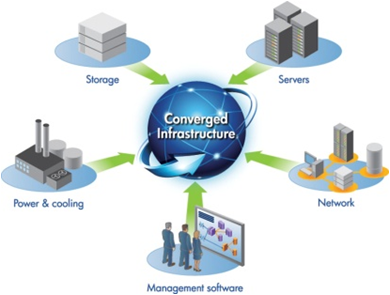 My kids are big fans of the Wizard of Oz. Me? Not so much. I’m more partial to Weird Al Yankovic than Judy Garland, but that’s not really important. Do you remember, in the Wizard of Oz, when Dorothy, the Tin Man, and the Scarecrow were walking arm in arm down the yellow brick road chanting: “Lions and tigers and bears. Oh my!“? Well, if HP Discover were the Wizard of Oz, it would be a bunch of marketing people walking down the road chanting “Clouds, convergence, and management. Oh my!”
My kids are big fans of the Wizard of Oz. Me? Not so much. I’m more partial to Weird Al Yankovic than Judy Garland, but that’s not really important. Do you remember, in the Wizard of Oz, when Dorothy, the Tin Man, and the Scarecrow were walking arm in arm down the yellow brick road chanting: “Lions and tigers and bears. Oh my!“? Well, if HP Discover were the Wizard of Oz, it would be a bunch of marketing people walking down the road chanting “Clouds, convergence, and management. Oh my!”
I’ve just finished a long week at HP Discover in Las Vegas,NV. As I am a network-centric person, I sat through as many network sessions as possible. Some of the presenters like Jeff Kabel, Les Stuart, Andres Chavez, and Dave Donatelli, I have heard before at either Tech Field Day events or Interop. For others, like Miguel Minicz, Mike Banic, Chris Young, Corey Dow, Jose Cornejo, Roger Sands, Craig Hinkley, and Rob Haviland, this was my first time listening to presentations from them.
What Message Am I Hearing From HP?
1. Clouds – If you thought the word fabric gets thrown around a lot, it doesn’t have anything on cloud. I’m hearing it so much here, that it doesn’t even bother me anymore. In fact, I have used it in several conversations. It’s not that I am totally sold on the idea of cloud for everyone, because I am not. It’s just that I have been beaten into submission by the marketers across the IT industry over the past year or so. I’m tired of taking the Larry Ellison approach and being combative over that word.
Perhaps I should make a distinction between my loathing of the overuse of the word cloud and the actual value of cloud. Having the ability to create resources dynamically/on-demand within your network, over the Internet, or being able to expand rapidly beyond your current capacity into a service provider’s environment/Internet is a valid need. Not for everyone though. Just like the hyping of various vendor’s fabric solutions, not every data center or enterprise network has a need for it.
Cloud is important. HP was pitching public, private, and hybrid cloud. They can help provide all 3. I am shooting for a general thematic overview in this post, so there’s no need to go into detail about each particular cloud type. Suffice to say that some clouds will be on your internal network, some will be on the Internet, and others will be a mix between the 2.
I watched a demo(Yes. It was canned.) of HP’s CloudSystem( http://www8.hp.com/us/en/solutions/solutions-detail.html?compURI=tcm:245-300983&pageTitle=cloud-computing#). You can basically drag and drop the various pieces you need into a template and then deploy it. You choose the virtualization piece, operating system, and certain applications you want to run on the system. I snapped a photo of what the interface looks like:
The people talking about this product make it sound like provisioning and deployment is a couple of clicks on the mouse and then you are done. What the demo doesn’t give you is a sense of how long this process takes in terms of spin up. You would also have to do a fair amount of planning on the front end before rolling it out. Who would roll out SAP or Oracle without doing some significant planning first? Not a lot of people. Or, maybe I am not understanding this right. The impression I got from the demo was that this product was a piece of cake to use. Of course, I should also point out that there were sessions around CloudSystem and I didn’t attend them since I was busy attending regular network sessions. Perhaps in those sessions they talked about proper planning and the actual time it takes to deploy the various pieces. I realize that in canned demos, you want to skip over the wait period as we all don’t want to sit around and watch a progress bar for 15 minutes. Don’t get me wrong though. I LIKE the concept.
HP CloudSystem Video
You can also get a PDF outlining HP’s CloudSystem here: http://h20195.www2.hp.com/V2/GetPDF.aspx/4AA3-2700ENW.pdf
2. Convergence – Every SINGLE session I sat through, except for 1 or 2, has mentioned convergence. It would also typically include a slide like this:
There is a HUGE amount of emphasis being placed on converged infrastructure. Storage, servers, network, power, and network management should all be converged into something, but I am not entirely sure what. The easy answer would be to say HP systems. However, in a few sessions, it was pointed out that HP wants standards based systems throughout the whole “convergence” animal so that you don’t just have to use HP systems. They’ll work with anyone as long as they are using standards based protocols and methods as well. I still have plenty of notes to review, so maybe the convergence angle will make more sense after reviewing my notes. If the answer is FlexFabric, FlexBranch, and FlexCampus, then that’s just fancy marketing for “use the entire HP stack”.
3. Management – IMC(Intelligent Management Center) was mentioned in almost every single session I sat through, and I sat in well over a dozen. The mention would usually come at the end, but sometimes it was mentioned in the early part of the session. I’ve seen several IMC demos. I am aware of what this product can do, and if it lives up to all of its promises, it should do very well. I’ve said for the last few years that network management tools can be broken into 3 main groups.
- Real-time monitoring tools that give me up/down status and alert me when something like a router or firewall goes down. – On a basic level, think What’s Up Gold, WS Watch, Solarwinds Orion, etc.
- Flow analysis tools. – These are programs produced by NetQoS, Compuware, Plixer, WildPackets,etc. These tools take in Netflow, sFlow, IPFix, and other flow data and give you a historical analysis of what occurred in the past or near present in terms of what kinds of traffic was passing over a given link or circuit.
- Configuration management tools. – These tools track device configurations and can deploy configuration changes to hundreds or thousands of devices. They also can enforce policies on devices so that if something like Telnet is prohibited on network infrastructure, it won’t allow someone to make a permanent change to a device config and will alert you to the attempted change.
IMC is the first product I have seen that appears to merge all three functions into one usable tool. From a network management perspective, it can do almost anything you can think of. As development of the product progresses, more and more functionality is being enabled. HP is touting this product as its single pane of glass(I heard that phrase in almost every session!) when it comes to managing your network.
For now it is mostly network-centric, but there are hooks into things like VMware vCenter and Virtual Connect. As HP is touting this product as a replacement for dozens of management products out there, it needs to work and work well. In my opinion, HP’s IMC is a product that can easily give them a foot in the door with companies who are considering HP for network gear. There’s just nothing else like it out there. You can literally get lost in all of the features it has. Thousands of types of network hardware can be managed. In HP’s words, they “manage Cisco better than Cisco”. Routers, switches, firewalls, wireless(Only HP’s solution from a lightweight AP perspective. Autonomous AP’s can be managed to a certain extent.), etc. It can also function as a RADIUS server, syslog server, NAC solution, and many more things.
As I told some people from HP, if this thing doesn’t work, you’ll have a big problem as you have touted this platform to be a game changer. Network companies traditionally have very poor network management software. IMC needs to be different and by all accounts so far, it is. You can grab a trial version of it here: http://h17007.www1.hp.com/us/en/products/network-management/IMC_ES_Platform/index.aspx
Final Thoughts
HP Networking is on message. – By that I mean I saw consistency across every session I attended. Sure, some of the slides were the same, but what I am really driving at here is that all of the speakers preached the same message. This is a pretty important thing if you want people in the industry to take you seriously.
It was a long, busy week at the HP Discover conference, but I REALLY learned a ton about HP’s networking solution once I was able to get beyond the marketing slides and talk to some of the architects/engineers that were there at the conference. Time permitting, I am going to try and go more in depth once I review all of my session notes. Regardless of what you think about the HP solutions (Yes, there are issues.), you will see more of them in the coming years.
My personal guess is that within 1-2 years, we should see only HP branded hardware and more complete documentation/design guides. Questions were raised in a few sessions about these things and they are being addressed. More than branding, I would say the availability of good architecture and design documentation is probably the most important. The main complaint I hear from my peers is that documentation is sparse.
For anyone out there who has some legitimate concerns/criticisms about HP and their networking vision, now is the time to raise them. They are listening and give the impression that they are in this for the long haul. If I could give one suggestion to HP, it would be to add more networking sessions for the next HP Discover conference. They need to be specific to your product set and cover things like implementation and design. I realize the 3Com acquisition is still relatively new, but for all the sessions I attended, I didn’t really learn a ton about specific products. Some of us engineers like to look under the hood and see what makes your products work. Luckily, I was able to talk to some pretty sharp technical people and discuss HP’s solutions versus some of your competition. I’m not asking you to duplicate Cisco Live, as I realize HP does far more from a product standpoint, but as more networking geeks show up to HP Discover, they won’t be satisfied with marketing slides.
Disclaimer: You can see my standard disclaimer under the About page. HP provided my transportation, food, lodging, and conference fees for HP Discover. There is no obligation on my part to do anything. About the only thing I will guarantee is that I will pop off plenty of tweets during the event. Sometimes I go a little overboard:





6 Responses to Clouds, Convergence, and Management. Oh My!